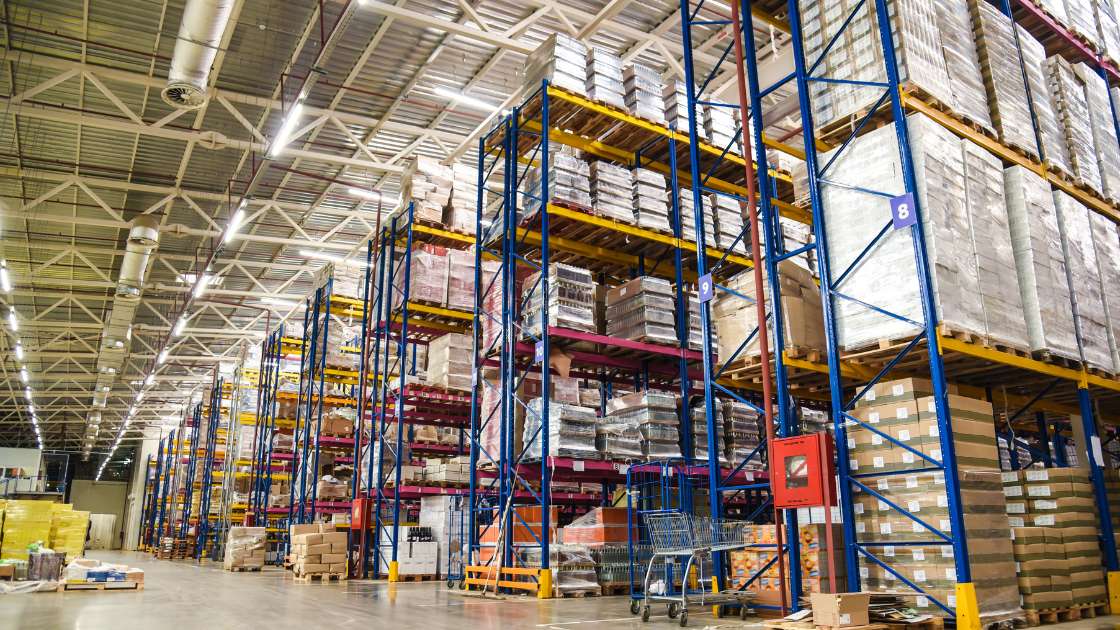Key Factors to Consider When Choosing a Food-Grade Warehouse
When searching for the perfect food-grade warehouse, it's crucial to keep certain factors in mind. These elements will ensure that your chosen facility meets the necessary standards for storing food products safely and hygienically. In this comprehensive guide, we will explore the top factors to consider when choosing a food-grade warehouse, ranging from cleanliness and hygiene to regulatory compliance and industry experience.
1. Temperature and Climate Control
The first thing to assess is whether your 3PL can handle ambient, temperature-controlled, or climate-controlled storage. While most food products can be stored in ambient conditions, certain items require specific temperature control. A food grade storage warehouse with temperature-controlled space uses cooling and heating units strategically placed throughout the facility. Temperature mapping and monitoring processes ensure the optimal temperature range is maintained.
2. Cleanliness and Hygiene
A clean and well-maintained facility is crucial for food storage. Look for a warehouse that prioritizes sanitation and hygiene. A master sanitation schedule and detailed cleaning processes indicate a commitment to high standards. During your visit, assess the facility's cleanliness, employee hygiene practices, and proactive pest control measures.
3. Storage Capacity and Layout
Consider the warehouse's storage capacity and layout to ensure your inventory can be accommodated effectively. Well-designed shelving and racking systems contribute to organized storage, making it easier to locate and access your products when needed.
4. Safety and Security
Verify that the warehouse has fire prevention systems in place to protect your goods from potential hazards. Secure entry points and restricted access to authorized personnel help safeguard your products. Surveillance cameras and staff training in safety protocols provide an added layer of security.
5. Regulatory Compliance
To ensure the highest standards of food safety, the chosen 3PL should be registered with the FDA and compliant with local food safety inspections. The Food Safety Modernization Act (FSMA) requires food product producers to have a food safety plan that includes hazard analysis, preventive controls, and oversight management. Look for certifications and audits from trusted agencies like AIB International to verify the 3PL's adherence to best practices.
6. Traceability and Inventory Management
Effective lot control is essential for food manufacturers. The warehouse should have a system in place to assign lot numbers to products, allowing for quick identification in case of recalls. The warehouse management system (WMS) plays a key role in managing lot control, inventory management, and other warehousing operations. Ensure the 3PL's WMS integrates with carrier systems and supports custom reporting.
7. Preparedness for Recalls
It is crucial to know how a 3PL handles recalls. Mock recalls providing an opportunity to assess their preparedness. A well-orchestrated mock recall includes flagging recalled items, segregating them in a hold location, and notifying warehouse personnel. The 3PL should have protocols in place to ensure the recalled items are properly managed and prevented from being distributed until further direction is received.
8. Proximity to Distribution Channels
Choosing a location that minimizes transportation costs can have a positive impact on your overall logistics expenses. Additionally, optimizing delivery times by selecting a warehouse close to your target markets can enhance customer satisfaction and supply chain efficiency.
9. Industry Experience and Reputation
Assess the warehouse's track record and reputation within the industry. Look for established providers with extensive experience handling food products, as this demonstrates their competence and reliability.
What types of food products can be stored in a food grade warehouse?
In a food grade warehouse, a wide range of food products can be stored safely and securely, including:
Perishable Foods: Food grade warehouses can accommodate perishable items such as fresh produce, dairy products, meats, and seafood, providing temperature-controlled environments to extend their shelf life.
Dry Goods: Non-perishable food items like grains, cereals, canned goods, and packaged foods can also be stored in food grade warehouses, ensuring their quality and protecting them from contaminants.
Frozen Foods: These warehouses offer freezing capabilities to store frozen foods, including frozen fruits and vegetables, ice cream, and other frozen desserts.
Conclusion
Prioritizing the above aspects will help ensure that your food products are handled and stored in a safe, compliant, and efficient manner. Remember, a reliable and well-equipped food grade storage warehouse can contribute significantly to maintaining the quality and integrity of your products throughout the supply chain.
Accurate Warehousing and Distribution offers an exceptional food grade warehouse in Las Vegas. Our certified warehouses meet stringent quality and safety standards, ensuring optimal conditions for your non-perishable items like energy drinks, water, and soda. With long or short term storage, cross-docking, and distribution services, we are your ideal choice for food grade products.
Accurate Warehousing and Distribution
6585 Escondido Street Ste B. Las Vegas, Nevada 89119 USA
(702) 777-0300




Comments
Post a Comment